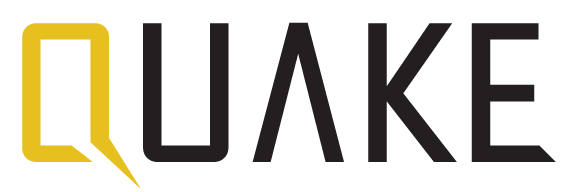This blog post aggregates and summarizes other blogs’ resources from the venture ecosystem that can be helpful to founders navigating the current COVID-19 crisis. We encourage you to read them, so please feel free to access the blog in-detail through the links.
Quake Capital does not own the rights to any of the blogs we are promoting below. We are excited to be featuring extremely detailed articles from NFX and First Round Capital.
We hope that you find these resources valuable.
Fund: NFX
Article: 28 Moves to Survive & Thrive in a Downturn
Author: Pete Flint (Managing Partner @ NFX)
Highlighted points:
The high level synopsis of this article is around three keys points surviving through a recession, as well as twenty-eight moves around these points that can help startups navigate through the most difficult times:
Managing Losses
Gaining Ground
Managing Psychology
Managing Losses – Key Points:
Coined at the least fun and the hardest key point of the journey.
Accept the new reality and change plan to prioritize cash.
Make layoffs deep and early if needed.
Prioritize focus on the staff that remains but deeply care for the team that has been laid off.
Continue to play offense, not just survival.
Split up and move around roles to run a lean and effective team.
Find the best executives and try best to deliver more upside after the downturn.
Assume cash cannot be raised in the near future.
If you’re not able to pay more, reward great performance with company stock
Share risk and reduce compensation cross-functionally.
Dive deep into data and assess where marketing capital can be the most efficient.
Renegotiate contracts and leases, but work together and be cognizant of vendor’s situation.
Reorient sales channels where there is effectiveness and higher margins.
It’s worth giving discounts to get cash in the door faster from your customers.
Assess all software and infrastructure costs.
Gaining Ground – Key Points:
Identify large gaps that occur between supply and demand during a recession. Move into areas where your product, if possible, can service demand where it’s needed.
Address needs that fulfill current needs or the anxieties of customers.
Speed is key. Test fast and try new things to see what sticks. Incumbents move twice as slow in this environment.
Sit with you customers, ask questions, and hope for 10x product development.
Switch fixed costs into cheaper outsourced costs such as contractors and service providers.
Leverage engineering to implement technology-driven processes while keeping costs low.
Build a high performance culture – stretch the team.
Managing Psychology – Key Points:
Be Transparent and empathize with your employees.
Encourage more company bonding and build community.
Adapt the company culture to the current reality.
Celebrate every small win possible.
______________________________________________________________________
Fund: NFX
Article: The Psychology of Founders Who Win in Downturns
Author: James Currier (Managing Partner @ NFX)
Highlighted Points:
The following article highlights eight mind shifts CEOs need to take in this type of economy that determine the success or failure of their company.
There are six key stages of founder psychology in a downturn:

Denial – Ignoring what’s happening in front of you, because you will lose or feel the collapse won’t touch you.
Anger – Analysis paralysis, loss of sleep, or pointing your anger at everyone around you.
Bargaining – Mind stays in the past and creates a plan that is not extreme enough to fit the current economic climate. Inventing a fantasy internally and believing investors will continue to fund at the same pace.
Depression – Mind gets used to the new reality, realizing progress has gone backwards.
Acceptance – The mind finally leaves the past behind and restarts, focusing on a new strategy and structure to take the company forward.
Creativity – The mind turns to creating new ways forward, a fresh product, new GTM strategy and pricing.
Mindset Shift #1:
Your own psychology will make or break a company at this time.
As a founder, you need to go through the five stages of grief above to get into acceptance and creativity.
Mindset Shift #2:
Acknowledge that it’s worse than you think.
Double or triple your expectations of when things will recover again.
Think again as if you’re returning to an earlier stage of the company.
Mindset Shift #3:
Switch playing from winning to playing not to lose.
Only when you nail survival can you thrive again.
Mindset Shift #4:
Embrace the crisis.
Mentally leaning in allows you to move quickly from denial into creativity.
Mindset Shift #5:
Recommit emotionally to your mission.
Mindset Shift #6:
Return to creativity to find the fast moving water.
Great founders in a crisis use the opportunity to shift their company and product towards greater energy and market demand.
Mindset Shift #7:
Pushing hard when others don’t.
The extra mile counts more now in this market where others start to get complacent.
Mindset Shift #8:
Doing something counter-intuitive and creative.
Nasty downturns are a great time to permit yourself to do something unorthodox.
______________________________________________________________________
Fund: First Round Capital
Article: The Founder’s Field Guide to Navigating this Crisis
Author: First Round Capital
Highlighted Points:
The following article goes into the specific details of how to navigate the current conditions, leveraging advice and guidance from leaders that have navigated similar times. It is packaged into eight parts.
Please also check out their Covid Response Hub for Startups
Please Subscribe to the First Round Newsletter Here
Part 1: Make sense of market conditions
Understand the duration of recessions from 1970 to now.
Beware of false bottoms where you think it has ended.
As public markets are the first to get damaged, the trickle effect dents all size companies in a timely manner.
Part 2: The case of responding quickly and thinking through scenarios
Account for widening aperture and longer recovery periods.
Beware of the consequences of delaying action.
Pick up tempo of execution faster than you have before; Waiting kills.
Part 3: The nuts and bolts of Scenario Planning – 5-step framework and why it’s important to have scenario planning framework.


Part 4: How to extend runway
Aim for 24 months+
Get conservative with your projections.
Give discounts for early payments and make your money last.
The best way to get capital if you need it is by being cash-flow positive, or at least have a clear path to being cash-flow positive. The easiest way to get money is when you don’t actually need it.
When making pivots, think about future impact. Is something that helps right now also going to help your business once everything returns to normal?
Reexamine everything you do. Don’t take anything off of the table (pricing, strategy, team structure, etc).
Make sure your extra few months of burn lead somewhere. Making cuts quickly can help now, but undoing cuts/restarting product development/changing go-to-market down the road will take much longer.
Part 5: How to reduce burn – strategies for cutting costs
Taking a good look at Headcount.
Reduce comps and hire freezing.
Be careful of marketing spend, especially for enterprise companies.
Cancel credit cards and re-issue new ones in order to cancel any recurring charges. Lower costs or cut completely any non-mission-critical software subscriptions.
Reconsider the services you have on retainer (PR, marketing, etc).
Part 6: How to bring in more capital – Tips for putting more fuel in the tank
Do not lose customers. This is critical. Focus on getting paid up-front by your stickiest customers.
Fundraise, but take with a grain of salt. Valuations will be cut heavily.
Venture Debt is a good option – only if you’re cash-flow positive.
Part 7: Supporting your team and leading through a crisis
As a founder, balance transparency and hope.
With your team, do post mortem and backcasts. This allows them to conceptualize downside and upside scenarios.
Maintain the culture of the company, despite volatility and uncertainty. Remind the team that vacation days are still available, despite being remote. Get updates on how they are doing personally. Let them feel that you are on their side.
Over-communicate as much as possible.
Part 8: Ending on a high note – The upside and the next wave
Recession-era founders at the heartiest. If you can tackle this, you can achieve amazing things with even the smallest of teams.
Please tune in monthly for our resource blogs as we will continue to feature articles from domain experts across several topics and industries!


